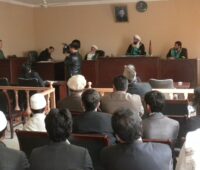The recent re-capturing of state power by the Taliban has led to much speculation of how they will rule Afghanistan. In this essay, Adam Baczko argues that one key part of the answer is to understand how the Taliban governed the rural territories they controlled while insurgents, in particular the judicial system they established. The Taliban courts, run by clerics, in many cases were seen as more legitimate and consistent, and less corrupt, than those set up by the NATO-backed Afghan government. Whether the localized social order that the Taliban created as a rebel group can now be replicated throughout the country as the ruling regime is open to question.















